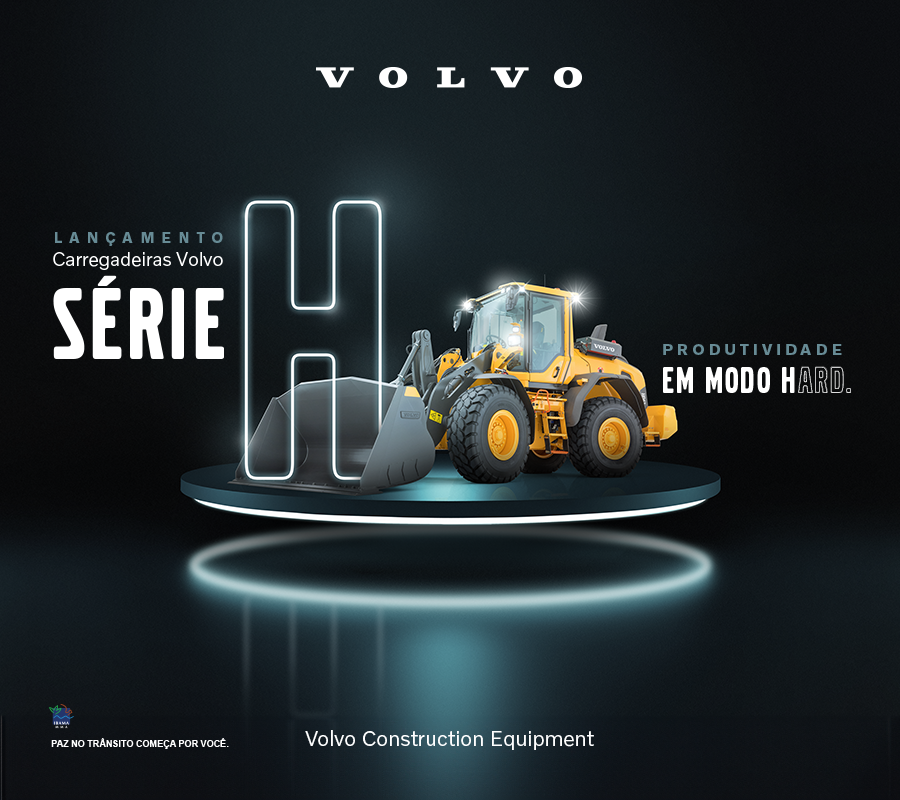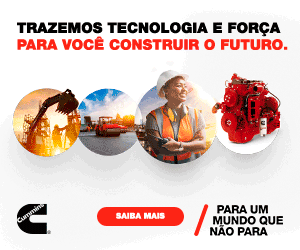Time of the green technologies

More efficient engines combined with the use of biofuels are available but still have a long way to be explored till being commercial in the next decades
The fight for the technologic vanguard in offering “green” engines to be used in commercial vehicles is already a fact in the industry of heavy engines. Part of this challenge, however, was not overcome. If in one hand the high cost of oil by-products and the perspectives of exhaustion of fossil fuels push the attempts to make the tested engines commercially feasible, on the other hand biofuels considered as a solution for the global warming are not produced in a satisfactory scale.
The hard reality involves also other factors. Who would be ready to pay more for a less pollutant heavy equipment? In the case of heavy trucks, will Brazilian regulations go faster if the Programa de Controle de Poluição do Ar por Veículos Automotores (Proconve-8 – Program of air pollution control caused by vehicles) starts, considering that the environmental profits will be negligible?
These are the questions made by the experts heard in this article. Since 2008, most of the manufacturers authorized a 20-percent mixture of biofuel (B20) to the diesel oil used in commercial vehicles. In practice, however, this effort did not lead to a less pollutant fleet in Brazilian roads or streets. In its turn, the industry also did not establish a production standard of engines propelled by renewable fuels. On the other end of this chain, the investments in production of biofuels are low if compared to the volume of resources assigned to oil production.
Without public policies to replace fossil fuels, removing gradually the diesel oil from the fuel stations and adding more renewable fuels to the fuel tanks, it will be even more difficult to change this reality. Currently, combined solutions with diesel oil and 30 percent of natural gas and 60 percent of ethanol were tested by Cummins South America, for example. “For now, our engines are certified in Brazil to receive up to 20 percent of biodiesel”, points out Luis Faraj, director of marketing and sales of the company. “A higher content of this type of fuel will worsen the consumption and will be completely out of the regulations established for diesel engines.”
In Colombia, Peru and other countries, Cummins already sells engines propelled by 100 percent of natural gas in its versions ISB G (5,9 l and 200 cv), ISB G (5,9 l and 230 cv) and ISL G (8,9 l and up to 320 cv). “Unfortunately, distribution of natural gas in Brazil does not have a scale that could allow us to sell this technology”, complains Faraj. For him, engine industry has to found a mandatory technology to become competitive and to offer a product with low operating cost. “Currently, engine manufacturers are investing in lower or higher pace to reduce diesel consumption. Our option is to develop and to offer dedicated products”, justifies him.
CHALLENGES
In spite of the countless obstacles to be overcome, ethanol, natural gas, sugar cane diesel, synthetic diesel (HVO) and dimethyl ether (DME) occupy the test benches of vehicle and engine manufacturers. Scania invests strongly in the improvement of their engines propelled by 100 percent ethanol. Around the world, the Swedish brand provides solutions for fuels such as biogas, natural gas, liquefied gas, biodiesel and bioethanol. In Latin America and Brazil, it is the sole brand to offer trucks and buses powered by 100 percent ethanol engines through its product range of 270 cv. “These vehicles liberate up to 90 percent less CO2 and have NOx emissions of 1.7 g/kWh and particulate emissions of 0.01g/kWh, while diesel engines go up to 4.6 g/Kwh and 0.08 g/Kwh”, calculates Celso Mendonça, presales manager of Scania in Brazil.
In São Paulo, the manufacturer has already sold 60 vehicles with ethanol-propelled engines to travel in the public urban fleet of the capital, at the same time that more 50 units are operating in MobiBrasil and more 10 units in Tupi Transportes. Two years ago, Natura—through its partner Orion—started to use the first shuttle bus of this type in Latin America, in the city of Cajamar (SP), transporting its workers. Since November, Scania is also testing a prototype propelled by biomethane/natural gas. The results show that the technology and fuel mixing are feasible. Other partnerships were also carried out with Itaipu Binacional, Sulgás, Braskem, municipalities of Sorocaba (SP) and Londrina (PR) and with other companies, institutions and suppliers.
In the words of Mendonça, ethanol is considered by international organs as the most advanced fuel, with possible use in diesel engines in a near future. “Scania is committed in offering vehicles even more economic and with lower emissions of CO2 (carbon dioxide)”, points out the manager. “This global philosophy benefits the society, the environment and the businessmen, since fuel is the cost of higher impact for those who work in this industry, corresponding to 40 percent of the expenses.”
FPT Industrial, a company of the CNH Industrial group that produces and sells powering systems does not discard the possibility of offering a bunch of options in the future. The company is already developing and offers to South American Market engines powered by VNG (Vehicular Natural Gas) as well as alcohol-diesel and biomethane-diesel hybrids. “We understand that the potential is huge but we still have problems with supplying several types of fuel in several regions, what prevents us to sell these technologies in Brazil”, says Alexandre Xavier, engineering director of FPT Industrial for Latin America. To solve the problem, the executive suggests that “the government would encourage the diffusion of these technologies to stimulate businessmen to use vehicles with zero emissions in at least a percent of their fleet”.

Av. Francisco Matarazzo, 404 Cj. 701/703 Água Branca - CEP 05001-000 São Paulo/SP
Telefone (11) 3662-4159
© Sobratema. A reprodução do conteúdo total ou parcial é autorizada, desde que citada a fonte. Política de privacidade














